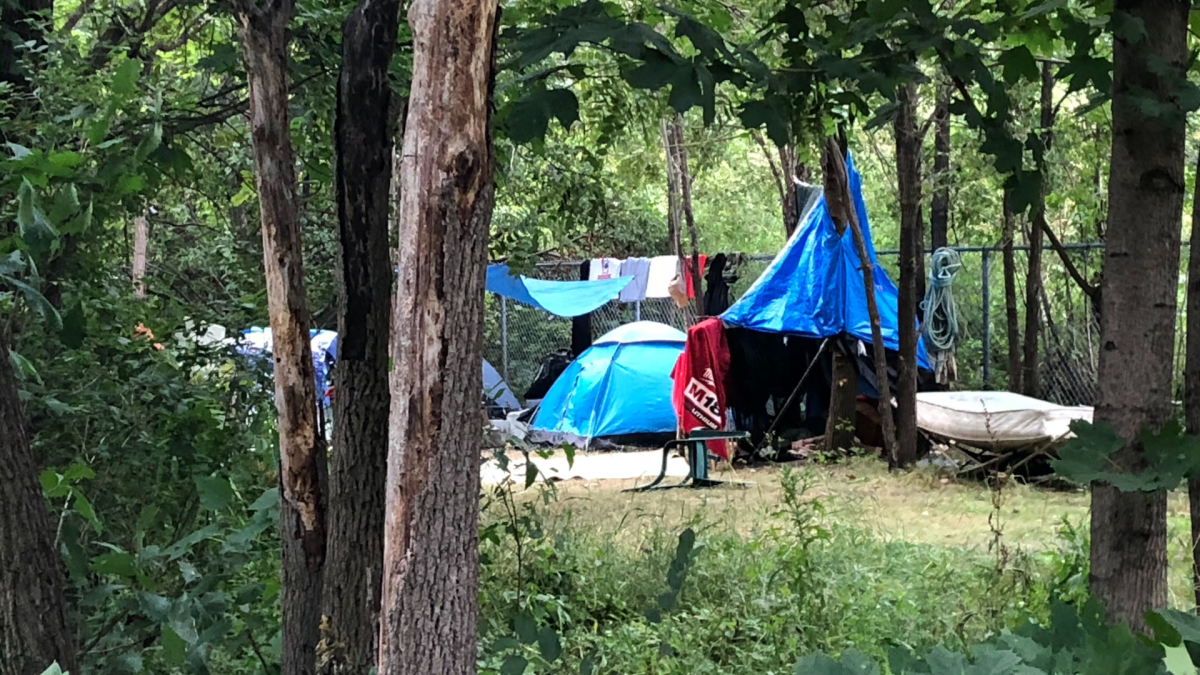The latest biannual update on life-expectancy among people living rough in Hamilton, Ont., says 22 people died due to homelessness between June and November 2022, largely due to drug abuse.

A six-month examination released by a number of local healthcare providers and social workers mirrors causes revealed in similar reports released in 2021 and 2022, suggesting the average life expectancy for a person experiencing homelessness in the city is 43 years old.
Statistics Canada data suggests the average Hamiltonian’s life expectancy is 81, based on numbers recorded between 2014 and 2016.
Since the group began tracking mortality among those experiencing homelessness as of June 2021, 56 people have died.
On average, that’s one death every 10 days.

Get breaking National news
The study, from a research group connected with McMaster University and the Homeless Support Network, also says 41 per cent of the deaths were due to overdose, with 36 per cent connected with violence, like homicide, fire, suicide or traumatic injury.
The deceased, all men, saw eight die in hospital, five out of doors and four inside one of the city’s shelters.
The latest data, retrieved primarily from those connected with local shelters, also revealed 82 per cent of those who died had been homeless for more than 12 months.
Twelve were unsheltered at the time of their death, while eight were living in the city’s shelter system.
- Khamenei’s death met with ‘jubilation’ among Iranian-Canadians: Liberal MP
- ‘Something just went off’: Canadians in Middle East describe ‘surreal’ Iran missile strikes
- ‘At first I cried’: How Iranian Canadians are reacting to the U.S. strikes in Iran
- Iran begins search for new leader; U.S. military says 3 service members killed
Mental illness and substance use were prevalent among individuals who lost their lives, with 15 having a connection with substance abuse and 13 having an accompanying mental disorder.
In a statement, McMaster social work researcher Gessie Stearns suggested city streets, shelters, hospitals, and jails need to be more than emergency holding zones where people are moved around continuously.
“A community connection is severed, violence is made less visible, and risk of harm is more probable,” Stearns said in a social media post Tuesday.
The total number of people who have connected with the city’s homeless-serving system as of January is around 1,500, up from the same time in 2020 when the number was around 1,000, according to a Health and Safe Communities report.
In late March, city councillors learned Hamilton’s path to ending chronic homelessness begins with providing more funding for prevention, accommodations and support with less reliance on emergency response, according to the long-awaited staff report.
Estimates suggest it would take initial annual funding of around $40 million and potentially future yearly financing in the range of $30 million going forward to avoid the gaps that exist now in affordable housing.
Stearns says the research supports the theory housing ensures equitable health and safety for the community and is “a proven harm reduction and life saving resource.”
“I think we need to support people to stay connected to each other. People need to be housed,” Stearns told 900 CHML’s Good Morning Hamilton.
“We need to make supports easier to access by providing the permanent place for people to belong.”















Comments
Want to discuss? Please read our Commenting Policy first.